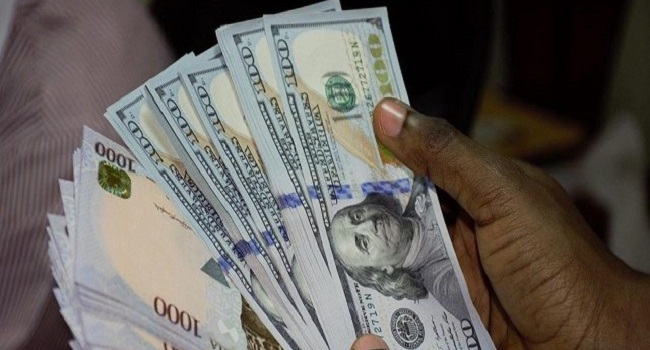Business
Naira falls 1.3% against dollar after plans to sell forex to BDCs

The naira depreciated by 1.3% against the United States dollar on the official market on Friday, one day after the Central Bank of Nigeria (CBN) announced plans to restart forex sales to Bureaux de Change (BDCs) as the country prepares to reopen its airports for international travel.
The local currency opened for trade at N385.50 per dollar on the market, supported by the CBN. It later recovered later to close at N381 per dollar, where it had been stagnant since July, Eikon Refinitiv data showed.
In a circular on Thursday, the apex bank declared it would restart dollar sales to BDCs from 7th September after it suspended auctions in March owing to a coronavirus-induced lockdown and after a 15% devaluation.
Read also: Naira gains against the dollar on black market as fx turnover rises by 1133%
It stated that retailers cannot resell dollars bought from the bank at more than N386.
The CBN moved to harmonise exchange rates this month, yielding to pressure from international lenders to unify its rates, eliminating arbitrage which has cost Africa’s biggest economy billions in reserves as it struggled to defend the naira.
With the early deal, the naira traded close to the over the counter spot market widely quoted by investors and exporters, where it closed at N385.67 to a dollar on Friday, having opened at N386.93.
But it was nevertheless 20% weaker on the parallel market patronised mostly by individuals at N477.
Join the conversation
Support Ripples Nigeria, hold up solutions journalism
Balanced, fearless journalism driven by data comes at huge financial costs.
As a media platform, we hold leadership accountable and will not trade the right to press freedom and free speech for a piece of cake.
If you like what we do, and are ready to uphold solutions journalism, kindly donate to the Ripples Nigeria cause.
Your support would help to ensure that citizens and institutions continue to have free access to credible and reliable information for societal development.






















